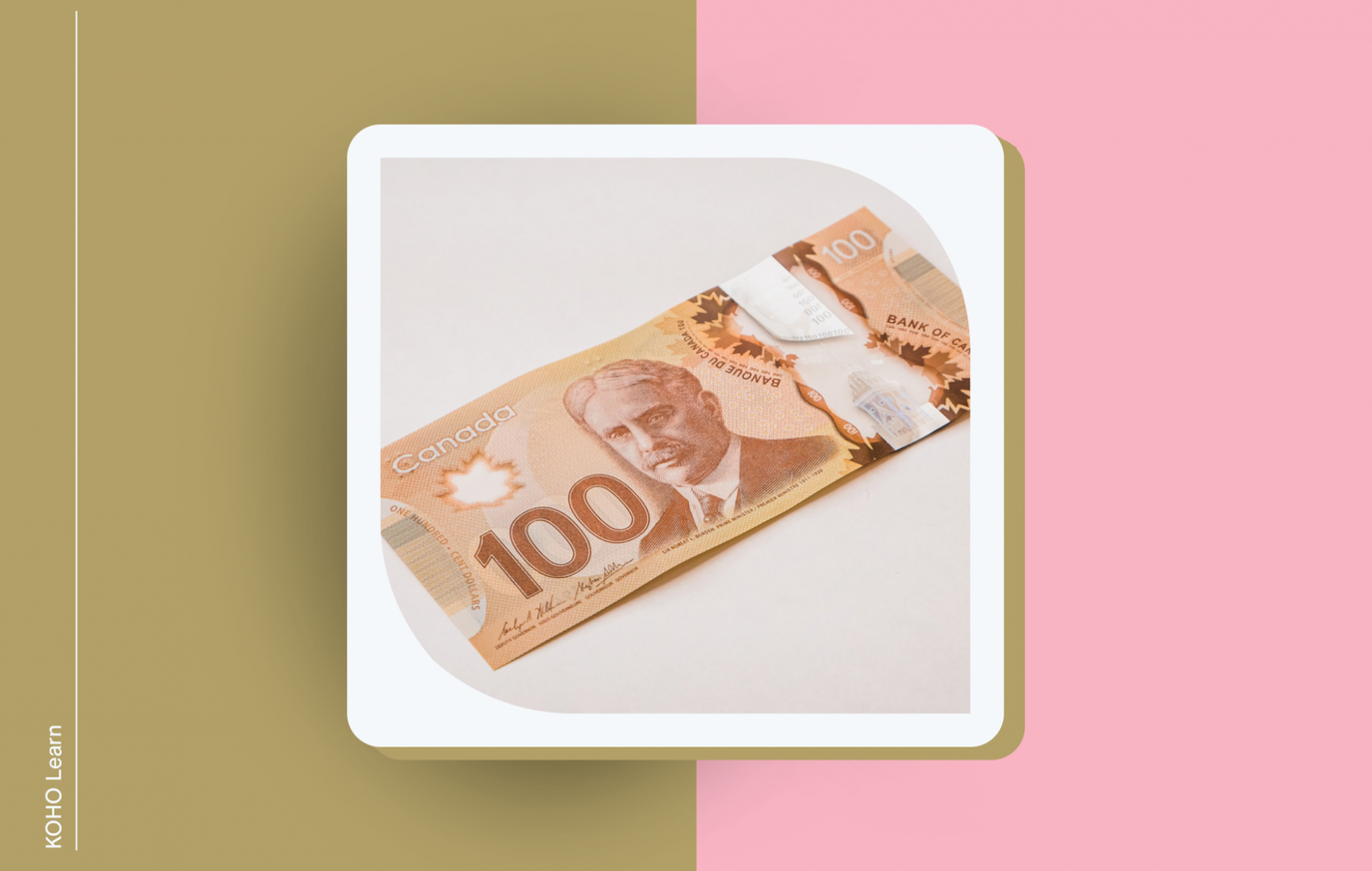Back to learn
Do I need to balance my chequebook?

Written By
Rounding it up
Balancing your chequebook used to be a time-consuming but critical process to ensure that money was headed in the right place.
It used to be necessary to sit down with your bank statement at the end of the month and compare it to the chequebook register you have on hand.
Apps and websites have made “balancing your chequebook” obsolete but it's still a great idea to look carefully at your transaction record to ensure you understand the money coming in and going out of your accounts.
It’s highly likely that your parents or guardian or grandparents sat down at some point during the month, laid out all their receipts on the table, pulled out their chequebook register, and tried to make sure everything equaled up. Talk about old-fashioned, right? The idea of balancing a chequebook is so antiquated that younger generations may not even understand the previous sentence.
Online bank accounts and instant access on our mobile phones have virtually done away with this critically important practice. It was, however, a key part of budgeting and ensuring people had enough money to pay the bills, buy groceries, and still put some money away in the savings account. So, do you need to balance your chequebook? Read on and we’ll discuss some of the reasons why you might want to take up this practice.
What is balancing a chequebook anyway?
Balancing your chequebook is better termed as reconciling your bank account. In days of yore (there’s your $4 word of the day), folks used to sit down and set out all of their financial transactions for a set period, usually monthly. Cheques were incredibly popular for the better part of 200 years before the growth in popularity of the debit card in the late 1990s. That’s why many grocery stores still have those tiny tables near the register—just for writing cheques.

Cheques, however, took forever to actually clear. Think about it; you’d write a cheque for your $50 grocery bill on Monday, the 1st of the month. That cheque would be bundled up and taken to the grocery store’s bank where it might not be opened until the 3rd. Then, the cheque had to be sent off to your bank for the grocery store’s bank to be paid, a process that might take place by the 10th. Finally, your account would be debited and the bill paid, perhaps around the 15th. This complex web of clearances is the reason canceled cheque fees are and remain so high: it’s pricey to process a cheque.
As you can see, this entire process takes forever and involves a lot of moving parts. It’s pretty easy to understand how cheques got lost and things didn’t get paid. That’s why it was so important to balance your chequebook. You’d take your bank account statement that appeared in the physical mail near the beginning of the month and sit down with your chequebook. The back contained a cheque register where you’d record each transaction, whether that be a written cheque or a direct cash withdrawal. You’d work your way down the register and statement, ensuring that each transaction is accounted for. If you discovered one missing, it was time to head to the bank and figure out where it went.
That sounds … awful. It wasn’t great and took a long time. Still, despite its tediousness, balancing your chequebook by hand has some significant upsides.
Awareness
One of the main problems with sticking to a budget for a lot of people is the inability to actually be aware of the money they have at any given time. Think about it: you head out to dinner with friends. You planned on paying for your part of the cheque but it’s Becky’s birthday so you split her portion with the others. Then, someone wants to head to this new bar that has great cocktails. Awesome, you think, you can certainly afford that. Maybe, but you didn’t plan for it, and by the following day you may have spent more than you think you did. Balancing your chequebook, even in a digital way can help you remain up to date on the dollars you actually have.
Identify Errors
It's rare, but banks make mistakes. By balancing your chequebook you can ensure that the bank is charging you the right fees and you’re not paying for more than you need. More common are errors made by merchants. If you’re not balancing your chequebook, it may be weeks or months before you realize you’ve paid more than you had to for a product or service.
Automatic Payments
Automatic payments are convenient, aren’t they? No longer do you have to fret about paying your cable bill because the money just leaves your account and you can go about watching reality TV all day. It is, however, increasingly common that we forget about the automatic payments and subscriptions for which we pay. Balancing your chequebook can help you get a grasp on these and cut down on some of the expenses you no longer need, like that streaming service you watched once three months ago.
Modern Chequebook Balancing
It's no longer really possible to sit down at the end of the month and balance your chequebook. You may not get paper statements anymore and you likely don’t have a chequebook at all. We can, however, use the term “balancing the chequebook” to mean being more aware of the ins and outs of our budget.
Check-In Daily
Check-in with your bank accounts each day. Make sure you look for transactions that seem out of place or are for more than you remember paying. Mobile apps make this extremely easy and fast. It takes no more than a few seconds to look through your accounts and make sure all is well.
Budget
Having a proper budget will help ensure you stay whole and can meet your financial goals. Whether you use a budgeting template, a spreadsheet, or an app, balancing your chequebook can help you stay on the straight and narrow AKA keep your budget on track. Imagine trying to budget without knowing how much money you actually had in your account. It just wouldn’t work.
Utilize Apps and Websites
There is a whole world of apps and services to aggregate your various accounts, from savings to chequing, and from credit to retirement. These services can not only help you keep an eye on your transactions, but also often help you plan for your future by forecasting payments due and making recommendations for financial products that may be helpful for you.
Need a bit more structure?
Prepaid cards are an easy way to help you learn the ins and outs of balancing a chequebook. Since they have a finite amount of money (only what you load on the card when purchasing or refilling), you can quickly and easily track the amount you’ve spent and plan for what you still need to pay for. KOHO has a variety of prepaid cards, as well as traditional bank accounts, all with stellar apps and helpful tools like financial coaching.

You need to “balance your chequebook”
That’s right, you do need to balance your chequebook. But not like your forefathers did. There’s no need to sit at the kitchen table, surrounded by paper, and try to sort out where that dry cleaner’s payment ended up. You can, instead, take a close look at your banking website or app and quickly and easily get a handle on the amount of money you’ve got coming in and the amount you’ve paid out.
Are you paying out more than what’s coming in? Maybe it’s time to rethink your spending. Do you have a larger amount coming in than going out? That’s great. Perhaps now is a good time to think about some new saving strategies such as investing for retirement or paying for that vacation you’ve always wanted to take. Balancing your chequebook means gaining financial knowledge about your situation and more knowledge can only be a good thing.

Dan Bucherer
Dan is a runner and writer living in the Washington, D.C. area, where he currently works for a financial services trade association as the Communications Director.